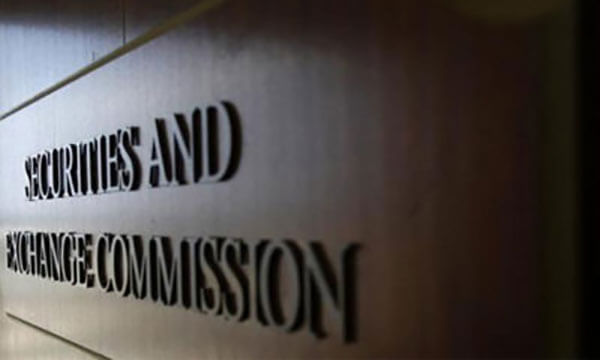Stock Exchanges are basically service providers where investors buy and sell shares and earn a profit. Prior to demutualization, these stock exchanges are run by the person who bought “seats” and also called the broker who charges a commission on every transaction.
This system was not healthy for the investors because they don’t have a voice and cannot control the affairs of these Exchanges. Basically there was a great conflict of interest between brokers who are also the owner of these Exchanges and investors who buy and sell the shares.
So the need was felt to convert the basic structure of the Stock exchanges. Then for the first time in 1993 demutualization of the Stockholm Stock Exchange occurred.
This process resolved many problems and at the same time also gave rise to other new problems.
Meaning of Demutualization
It can be defined as “The process of converting exchanges. From non-profit member-owned organizations to for-profit investor-owned corporations”[1].
This process was not so simple because government consent is needed to convert membership rights into shares. Which will be followed by the initial public offer and then listing of the exchange with transferable shared[2]?
The exchange became a limited company for profit. In this way, access to the stock exchange is not restricted anymore to membership. The first converted stock exchange was the Stockholm Stock Exchange in 1993 afterward this trend becomes popular.
There is often misconception relating to the demutualization. This concept is often linked with for-profit exchanged but this is not the only difference.
There are many exchanges that give profits to its owners but these are not demutualized. The core difference lies in the segregation of ownership and membership.
The more correct definition is given by the World Federation of Exchanges. Which is “The demutualization of an exchange is a process. In which non-profit member-owned organization is transformed into a for-profit shareholder corporation. Ownership is somewhat open”[3].
Position of Stock Exchanges in Pakistan
In our country, the stock exchanges corporatization, demutualization, integration act was passed in 2012. Prior to this act, the position was the same as in 1990 in the rest of the world.
The three main exchanges Karachi, Lahore, and Islamabad stock exchanges were running as no for-profit entities. In that structure, there are flaws such as conflict of interest as members and investors[4].
This results in a lack of transparency and fairness in the market. This act gave 119 days to convert them into for-profit entities owned by the shareholders.
Factors Affecting Demutualization
The change in the structure of any organization depicts the change in the business environment. The important factor which driven the exchanges to change its structure was the global competition, technological advances[5].
The impact of competition
Invention and new technology lead to the rise of new competitors. Off floor trading system introduces in the exchanges which started to compete with traditional stock exchanges and damaged their liquidity.
With these changes, the old structure became less applicable. Another issue was the ability to raise new capital. As the competition between exchanges started. The investors were looking to pay fewer commission fees and more profit with the fast trading system[6].
The Impact of technology
With the advancement in telecommunication. Trading is moving towards electronic platforms which are not available in certain places. Now investors can trade without going in the exchange and without physical interaction.
Such as Central depository companies are providing such facilities. This system caused lower transaction costs of trading and a better price.
There are now minimal chances for those who wrongly manipulate the market[7].
Investor participation
Stakeholders like listed companies, institutional and retail investors have become very important in the new system.
Under the new structure, power is shifted from one stakeholder to another by separating the members from ownership.
The new system makes investors as shareholders which increases the liquidity.
Consolidation
Another factor that leads to demutualization was strategic alliances and consolidation. Stock exchanges are in competition. That is the reason most of the world’s exchange has gone through a conversion to deal with this problem[8].
Challenges to Demutualization in Pakistan
There are groups that are in favor of this process yet there are also those who object it. Their arguments are as follows:
The arguments in favor of Demutualization
The demutualization responds to the needs of investors and issuers. It has converted the perception about satisfying the financial intermediaries to the market participants.
Now the stock exchange is more transparent with the restriction on the market with less bureaucracy involvement. With the involvement of intermediaries, it resulted in cost-saving to investors and improved access to the market.
Self-listing on the exchange also helps it to engage in other commercial activities[9].
Argument Against Demutualization
A major concern of demutualized stock exchanges is to develop and enforce appropriate listing and disclosure standards. Which enhances the surveillance, discipline and fair and equal treatment of the customer.
There is also a conflict of interest in running the stock exchange as a commercialized entity. and as a self-regulatory organization.
Then again there is a need to impose more regulation in order to curb anti-competitive practices.
In the words of Ruben Lee the CEO at Oxford Finance Group. he says that “Being demutualized entities, they will seek profit maximization. They are expected to behave the same way as monopolistic enterprises, raise the price and reduce output”[10].
Stock Exchanges Regulatory Models
Basically, stock exchanges are the regulator and they are mainly concerned to maintain a balance between maximization of profit and shareholders’ value of stock exchanges. To accomplish this objective there are three main models that are running.
- Firstly: There is a model in which stock exchange continues to carry out its regulatory function even after demutualization.
- Secondly: The exchanges are set up as separate entity which will carry out only regulatory functions. This way conflict of interest can be avoided.
- Thirdly: The exchanges can outsource its regulatory function to a completely independent third party. Which are governed by the government and subject to accountability hence will avoid the conflict of interest[11].
Disadvantages of Demutualized Stock Exchange
Demutualization is a multi-disciplinary issue. These exchanges became profit entities it will contradict with its role as public entities as a service provider. This process raises certain challenges some important are described below[12]:
Self-Regulation
Conversion from non-profit to for-profit organizations is no purposeful. Unless they put the interest of investors, issuers and other stakeholders first.
Because demutualized exchanges will mainly focus on profit, as a result, it will lose its role as self-regulatory.
Self-Listing
Another conflict may arise is the listing its own shares on stock exchanges. Because it can derive advantages in this way, but this issue can be adequately resolved if more safeguards are evolved.
Transferability of Shares
In this new structure, shares can be easily transferred. But what will happen if a hostile takeover happens and the interest of new shareholders is not protected?
Governance
The new governing structure is needed in which directors on board will be included from outside. They will serve to check and promote integrity in decision making. It will reduce the risk of delayed decisions.
Conclusion
Stock exchanges are continuously looking to carry out their function as for-profit organizations. Using business polices which are capable to face competition challenges posed by other competitors and new electronic trading platforms.
Demutualization has also played a pivotal role in the emergence of stock exchanges. It has also given confidence to investors to invest their capital. Because now the situation has changed and members are not the owner.
This separation of ownership and the right to trade has put a positive impact on the perspective of investor protection. Apart from the challenges like self-regulation, self-listing, governance, transferability of shares. It can be said that demutualization is a good step toward investor protection.
References
[1] Reena Aggarwal, “Demutualization and corporate governance of stock exchanges,” journal of applied corporate finance, (Georgetown University 2002) vol 15: p 105,
[2] Cally Jorden and Pamela Huges, “Which way for market institutions: The fundamental question of self-regulation, ” Berkeley Business Law Journal, (2006) vol 4 p 205 Available at https://scholarship.law.berkeley.edu/bblj/vol4/iss2/1/ (accessed 24.5.2015)
[3] World Federation of Exchanges, “Cost and Revenue Survey,” (2005) annex 1, p 37.
[4] “Bourses demutualization act promulgated,” Dawn News, 07 May 2012 available at https://www.thenews.com.pk/article-47946-President-signs-Stock-Exchanges-%28Corporatization,-Demutualization-&-Integration%29-Act (accessed 24.5.2025)
[5] Reena Aggarwal, “Demutualization and Corporate Governance of Stock Exchanges.” Journal of Applied Corporate Finance 15, No.1: 11, Available at https://faculty.msb.edu/aggarwal/exchanges.pdf (accessed 25.5.2015).
[6] Arwa M. Morsy, “The Impact of Demutualization on the performance of Stock Exchanges,” (Research Proposal, Maastricht School of Management,2007): 10
[7] Ibid. p. 9
[8] Ibid. p. 12
[9] Ruben Lee, “The Future of Securities Exchanges,” Working Paper- the Wharton Financial Institutions Center at Wharton School,(2002) p 15 available at https://www.oxfordfinancegroup.com/media/10341/lee%20future%20securities%20exchanges%202002.pdf (accessed 24.5.2015)
[10] Ibid. p 15-16
[11] Reena Aggarwal, “Demutualization and Corporate Governance of Stock Exchanges.” Journal of Applied Corporate Finance 15 (2002):109-110 Available at https://faculty.msb.edu/aggarwal/exchanges.pdf (accessed 25.5 2015).
[12] R Ramaseshan, Issues in Demutualization of Exchange, p 5-7 available at nseindia.com/content/press/jun2002b.pdf (accessed 25.5.2015)



